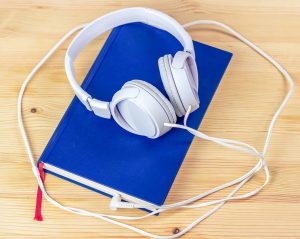 An estimated 26 million students have learning differences, including tens of thousands of students with dyslexia, a neurological condition that affects reading and related language-based processing skills.
An estimated 26 million students have learning differences, including tens of thousands of students with dyslexia, a neurological condition that affects reading and related language-based processing skills.
Unless educators can find new approaches to deliver reading instruction and personalize learning environments for these frustrated learners, many will fail.
How can a teacher with a class of 15, 20, or 25 students, many of whom read below grade level, address each learner’s instructional needs while keeping them all on track to read age-appropriate materials and have the learning confidence to succeed? These two teachers have found the answers through audiobooks and access.
Joelle Nappi, a dyslexia therapist for Dwight D. Eisenhower Middle School in Freehold Township, N.J., works with students who feel embarrassed and marginalized by their struggles with reading. Since her district expanded access to grade-level text by providing human-read audiobook technology, Nappi’s students’ reading skills and confidence have improved dramatically. “We just wanted more students to enjoy a successful reading experience first,” she says.
Many of the audiobooks feature onscreen highlighting for a multisensory learning experience. Students like the Chrome and mobile apps for the built-in classroom tools that allow them to take notes for book reports, do research, and build vocabulary lists all in one place.
With the help of a variety of reading programs like the
Wilson Reading System,
Just Words,
Project Read®, and
Learning Ally, Nappi is seeing positive results across the board. Her students are reading books and are happy to talk about what they read—a rare occurrence for struggling readers.
At Stephen F. Austin High School in Sugar Land, Texas, 10th-graders read rigorously in their global studies English II courses, even though many are not skilled readers. In this high school, an estimated one in four students has been identified with a learning difference like ADHD or dyslexia, and 25 percent of the student body is economically disadvantaged.
Stacy Allen Webster, the instructor, says, “No student should ever be denied access to a rich library of world literature, even if they aren’t strong readers or don’t have Internet access at home.”
Students are also encouraged to take ownership of their learning process and have plenty of choices to select books that are of personal interest to build background knowledge. “Providing access to technology and text in multiple formats is a strategy that works well for older students,” says Webster.
One of Webster’s key messages to her students is that reading is the key to learning. She regularly reminds them, “If you want to become a better reader, READ more. If you want to become a better writer, same thing—READ more.”
 An estimated 26 million students have learning differences, including tens of thousands of students with dyslexia, a neurological condition that affects reading and related language-based processing skills.
An estimated 26 million students have learning differences, including tens of thousands of students with dyslexia, a neurological condition that affects reading and related language-based processing skills.